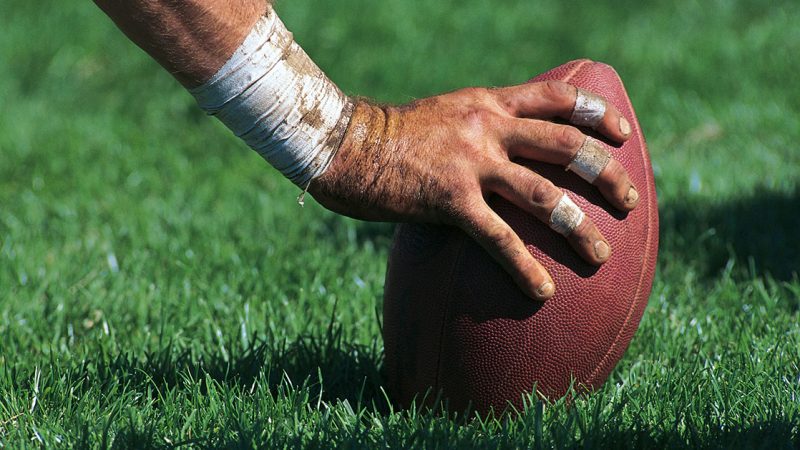
(NEXSTAR) – Sure, it involves feet. But so does almost every other sport, to some extent.
Football, also known as American football or gridiron football, is the most popular spectator sport in the United States. But most of us probably couldn’t tell you why it’s called “football” instead of, say, “tackleball” or “oblongball.”
And yes, there’s a kicker on every team whose job is to launch the ball through a set of goalposts with his foot, but that’s not where the name of the sport originated either.
The exact etymology of the word “football” is slightly unclear, but many historians say the term dates back to the late Middle Ages when it was used to refer to any sport that was played on foot, as opposed to sports played on horseback. Over centuries, it came to be associated with different kicking games played throughout the U.K., the rules of which were eventually combined and standardized to form football (or soccer, as it became known in the U.S.) in the mid-19th century.
Around the same time, rugby — or rugby football — began developing in and around England. Though similar to soccer in that it required a team to advance a ball toward its opponents’ goal, it differed in that players could pick up the ball and run it down the field.
Over the next decades, American universities began playing their own early forms of football using rules derived from both rugby (rugby football) and association football (the sport that came to be known as soccer). And by the turn of the century, American games of football had evolved and adopted so many new rules that they barely resembled U.K. football.
By that time, however, the name “football” had already taken a foothold in America, and it was here to stay, according to the Pro Football Hall of Fame.
This still leaves one important question unanswered: If we adopted the word “football” from overseas — where football is something else entirely — where did we get the word “soccer”?
Surprisingly, the word “soccer,” too, traces back to England. In order to distinguish the early versions of soccer-like games and games of rugby (both of which were often called “football”), fans of the former began calling it “association football,” a nickname derived from the name of the Football Association, which was charged with governing the sport’s rules. Over time, this was shortened to “assoc” or just “soc,” and slang-ified with an -er, according to Oxford’s Lexico.com.
Interestingly enough, this particular type of slang — adding -er to certain words — is thought to have been popularized by students at Oxford University, who adopted it from students at the Rugby School in Warwickshire, England, where the game of rugby is believed to have originated. (This same slang is said to be responsible for the word “rugger” to describe rugby, or the word “tenner” to describe a ten-pound note.)
When association football began gaining popularity in countries outside of the U.K., fans preferred to call it “football” rather than the slang term “soccer,” so the sport once again reverted to “football” for much of the globe. But in places where gridiron football was becoming more popular (like America, Canada and Australia), “soccer” became the default term for the game played with your feet — and “football,” somewhat ironically, remained the name of the game with much less kicking involved.












